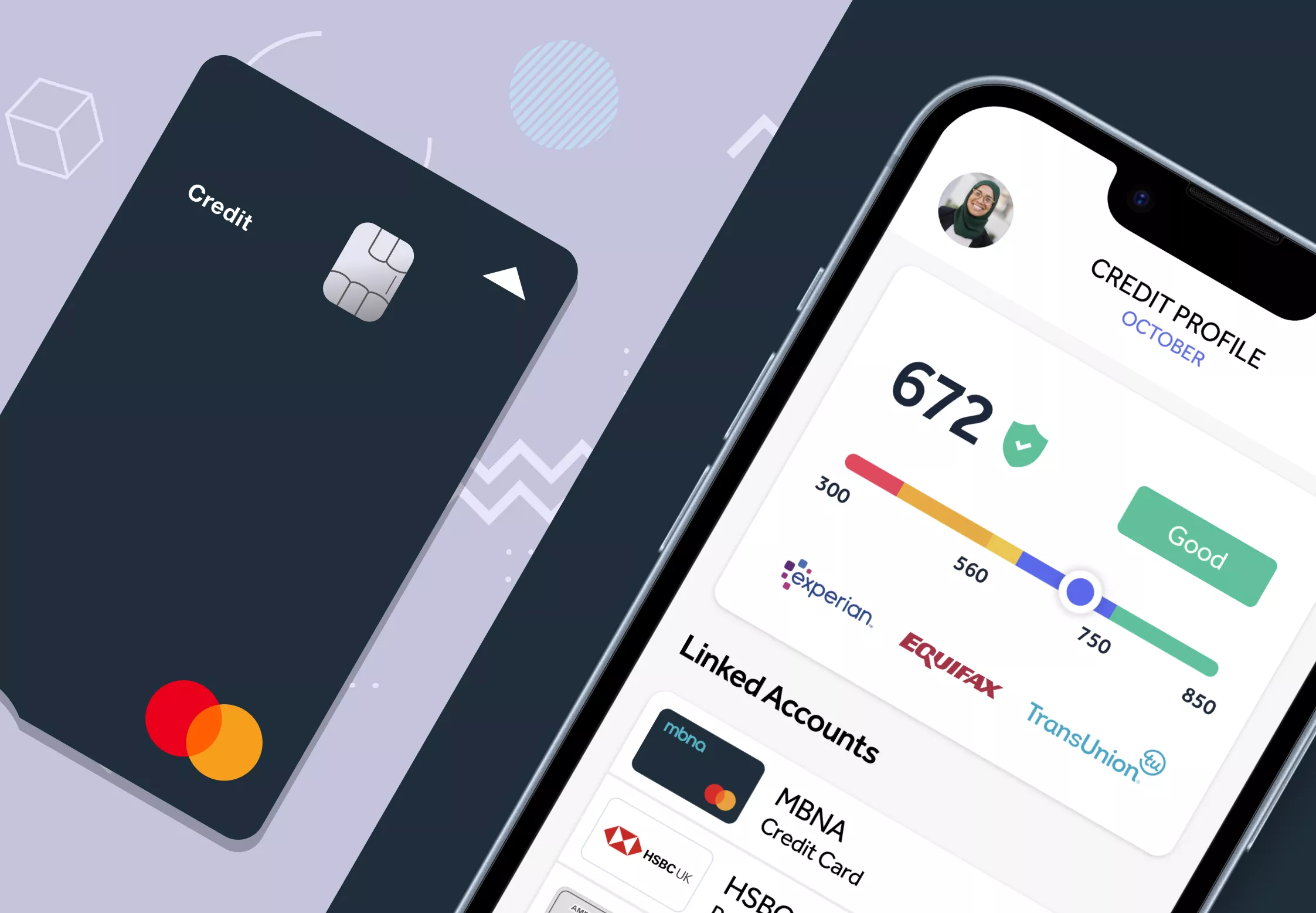Unsecured Personal Loans in the UK – What You Need to Know
Editor, Credit Cards: Michelle Blackmore
Last Updated: February 6, 2026
In This Article
Compare the best personal loans in the UK – check eligibility with no impact on credit score
Unsecured personal loans let you borrow a fixed sum without needing collateral, making them accessible for various needs like debt consolidation or large purchases. Here’s what to know:
- Borrowing range: Usually between £1,000 – £25,000 (varies by lender and some offer up to £50,000).
- Loan term: Between 1 and 30 years but varies by lender and loan amount.
- Interest rates: Typically between 6% and 30%, based on credit score.
- Approval factors: Credit history, income, and lender criteria.
- Best for: Borrowers with strong credit looking for a flexible loan option.
- How to apply: Use a soft search eligibility tool (no credit impact) to compare lenders before applying.
Unsecured personal loans provide a fixed amount of money from a lender, which borrowers repay with interest over a set term. In the UK, personal loans can cover various needs, such as consolidating debt or funding large purchases. The interest rates often depend on the borrower’s credit history and the loan type. Read on to understand more about personal loans in detail.

Get Personalised Loan Rates
Find lenders that can approve you
Options for all credit backgrounds
Representative 32.9% APR
No impact to your credit score
Mintify Limited, trading as Mintify, is an Introducer Appointed Representative of Creditec Limited who acts as a credit broker, not a lender.
Why do people take out personal loans?
Life happens and sometimes you need a bit of extra financial support; maybe you need to replace your washing machine, consolidate debt, or cover a one-off cost. A personal loan can help spread that expense into manageable monthly payments.
In February 2025, the average personal loan debt per UK household was £5,711 excluding student loans. Personal loans are commonly used for home improvements, car purchases, and other larger expenses.
However, while personal loans are common, it’s important to think carefully before taking on new debt and if you do decide to borrow, always try to secure the best possible deal. At Mintify, we help you compare unsecured personal loans from trusted UK lenders. Take a loan approval check that uses a soft search and won’t impact your credit score, helping you see which loans you’re more likely to be approved for. Always remember that final approval is only given by the lender once move through the full application.
What are personal loans?
A personal loan is a way to borrow a fixed amount of money and repay it over time with interest. Most personal loans in the UK are unsecured, meaning you don’t need to use your home or car as security.
Typically you will repay the loan in equal monthly instalments over a set term, usually between 1 and 10 years but some go up to even 25 years. Once approved, the money is paid directly into your account, and repayments begin shortly after.
Why compare unsecured personal loans?
Comparing personal loans is one of the best ways to find value and avoid unexpected costs. By comparing loans, you can:
- Discover the lowest interest rates available to you
- Avoid personal loan lenders that charge hidden or excessive fees
- Choose repayment terms that suit your monthly budget
- See which providers are most likely to approve you based on your credit profile
- Understand the true cost of borrowing before you apply
How do personal loans work?
Personal loans don’t require any assets as security. Approval is based on your credit score, income, and financial history. If accepted, you borrow a set amount, repay it monthly, and pay interest on the amount owed.
What are the requirements for a personal loan in the UK?
To qualify for a personal loan, you typically need:
- To be 18 or older (some lenders require you to be at least 21 years old).
- To be a UK resident with proof of address.
- Have a stable income.
- Have a good credit score.
- To be able to submit proof of identity.
Some lenders also require a minimum income threshold to ensure you can afford to repay the loan.

Mintip: Since there’s no asset secured against the loan, interest rates tend to be higher than with secured loans but they’re faster to access and involve less risk against your assets.
Home improvement loans in the UK
Home improvement is one of the most common reasons people take out personal loans. The average UK household spends around £1,889 per year on household goods and services, with nearly half of that going toward major items like furniture, furnishings, and appliances, according to NimbleFins. In fact, “making a house a home” now accounts for over 6% of the average household budget.
If you’re planning a renovation, replacing white goods, or upgrading your living space, a personal loan can help spread the cost over time in a manageable way. By getting a free quote, you can compare options so you can make the right financial decision based on your needs and credit profile.

Get Personalised Loan Rates
Find lenders that can approve you
Options for all credit backgrounds
Representative 32.9% APR
No impact to your credit score
Mintify Limited, trading as Mintify, is an Introducer Appointed Representative of Creditec Limited who acts as a credit broker, not a lender.
What interest rates can I expect?
Personal loan interest rates vary based on your credit score and personal circumstances. According to the Financial Conduct Authority (FCA), when a lender advertises a representative APR, it must reflect the rate that at least 51% of customers who are accepted for the loan will receive.
This means the actual APR you’re offered may be higher or lower than the representative rate, depending on factors like your credit history, income, and overall financial profile.
Always review the full terms of any loan to ensure it’s affordable and suitable for your needs.
How much does a personal loan cost?
The cost of a personal loan depends on three main factors:
- The amount you borrow: higher loan amounts usually mean more interest paid.
- The APR (Annual Percentage Rate): this includes both the interest rate and any compulsory charges.
- The loan term: longer terms reduce your monthly repayments but increase the total cost over time.
Personal loan rates vary depending on the lender, how much you want to borrow, how long you take to repay it, and your credit history. While longer terms may offer slightly lower APRs, you’ll likely end up paying more interest overall.
To get a clearer idea of what a personal loan could cost you, try our loan calculator; you can adjust the loan amount and term to see different options available and the total amount repayable.
Mintip: It’s important to note that lenders can change fees and rates, so it’s essential to carefully review the terms provided by the lender before making any decisions. Always use online loan calculators as a guide only, as they provide estimates rather than exact figures.
Tips to improve your loan approval chances
Check your credit report for any errors
If you find any errors on your credit report, report them immediately to ensure your details are up to date and accurate.
Register on the electoral roll to verify your address.
Being registered on the electoral roll helps lenders verify your identity.
Reduce existing debts where possible
By having less debt, you will likely be considered for more favourable loans and terms.
Avoid making multiple credit applications in a short time
Too many applications can signal to lenders that you are in need of debt.
Things to consider before taking out a personal loan
A personal loan can be helpful, but it’s still a financial commitment. Make sure it’s the right choice for your circumstances:
- Can you afford the repayments? Missed payments may result in extra fees and harm your credit score.
- Is the loan necessary? Borrowing for non-essential or short-term purchases can lead to regret and debt.
- Do you understand the total cost of credit? In April 2025, the average APR for a £5,000 personal loan was 11.13%, and 6.73% for a £10,000 loan. The average overdraft APR, by comparison, was 38.01%.
- Be cautious with high APRs. If the rate exceeds 30%, consider if the cost is justified.
- Avoid persistent debt. If you’re borrowing to cover everyday bills, you might benefit more from speaking to a free debt advice service.
Remember, borrow responsibly. Taking on debt should support your future, not hurt it. If you’re unsure, seek advice from financial experts or organisations that can guide you.

Get Personalised Loan Rates
Find lenders that can approve you
Options for all credit backgrounds
Representative 32.9% APR
No impact to your credit score
Mintify Limited, trading as Mintify, is an Introducer Appointed Representative of Creditec Limited who acts as a credit broker, not a lender.
Frequently asked questions about personal loans
What are the best personal loans right now?
The best personal loans offer low rates, manageable terms, and minimal fees. Use Mintify to compare personal loans based on your credit profile including lenders you’re more likely to be approved by.
What does 'unsecured' mean in a personal loan?
Unsecured Personal Loans means you don’t need to offer any assets as security against the loan. Lenders approve the loan based on your credit score, income, and borrowing history.
Are there guaranteed personal loans?
All responsible personal loan lenders carry out affordability and credit checks. That said, some lenders specialise in bad credit loans and our soft-search tool can show options you’re more likely to qualify for.
Will checking my eligibility harm my credit score?
An eligibility check only performs a soft search; it won’t show on your credit report or affect your score.
Do personal loans have application or arrangement fees?
Some lenders charge setup or arrangement fees, but many don’t. Always check the terms and conditions of the loan you have been approved for.
Can I repay a loan early?
Yes, but always check the terms. Some lenders charge early repayment fees, while others allow overpayments with no extra repayment fees.
Can I get a personal loan with same-day funding?
Yes, some lenders do offer same day or next day funding, especially if you apply early in the day and your application is straightforward. However, not all lenders can process loans this quickly because of identity checks and affordability assessments which can cause delays.
It’s also worth being cautious. The promise of fast money can make it tempting to borrow on impulse, even if you don’t truly need to. Always take a moment to consider whether the loan is right for you.
When you take out a loan or get credit for goods or services, you enter into a credit agreement. Under the Consumer Credit Act 1974, you have the right to cancel the agreement within 14 days, often called a cooling-off period. This gives you time to reconsider if the loan feels like the wrong choice.
Borrow carefully and know your options
Taking on a personal loan should be a decision you consider carefully. If you’re unsure about borrowing or are struggling with existing debts, there are tools and services that can help.
The StepChange Debt Remedy tool is a free, confidential resource that asks questions about your income, spending and circumstances then provides a personalised recommendation to help you move forward.
Related Articles
Check your credit card eligibility in the UK
Balance transfer cards for credit builders
How much can you balance transfer?
The content presented here has been impartially gathered by the Mintify team and is offered on a non-advised basis for informational purposes only. We adhere to strict editorial integrity
Editor, Credit Cards: Michelle Blackmore
Last Updated: February 6, 2026


